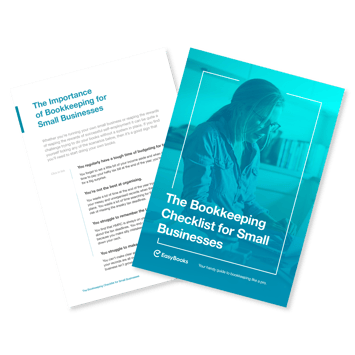Bookkeeping may seem like one of the biggest headaches in business, but unfortunately, it’s one of those things that simply can’t be avoided. To keep your business organised and as profitable as possible, you’ll need to smarten up your bookkeeping skills. Just by separating your bank accounts and planning well in advance for key tax dates, you can improve your bookkeeping process to no end. We’ve covered even more in this blog.
For a lot of small businesses, it can seem pretty overwhelming but it really doesn’t need to be. We’ve put together four vital bookkeeping practices for small businesses like yours to bear in mind when doing the books. We'll look at:
Make Life Easier For Yourself and Separate Your Bank Accounts
At the time of starting up, it’s the most convenient thing to do, especially as you want to be focusing your time elsewhere rather than setting up business bank accounts. But as your business expands, it can be a very counterproductive way to operate.
Not only does it affect overall efficiency, but you’re just making bookkeeping more difficult for no reason. So, if you already haven’t, you need to separate your bank accounts for a much easier life.
Bookkeeping is all about keeping track of all the incomings and outgoings. So, if both of your personal and business finances are all from one account, it can become confusing and time-consuming very quickly.
By opening a separate bank account, you’re completely segregating your business’ financial activity which should make it much easier to look after. Business bookkeeping isn’t the most straight forward at the best of times, so there’s no point making it harder for yourself.
Make Sure You’re Always Planning in Advance for Tax Dates
You're probably already aware of the tax deadlines and you’ve probably already planned in advance for them. But just make sure you're ALWAYS planning in advance. It's far too easy to forget and only remember tax dates when they're due.
One practice that we definitely would recommend is noting all the key important tax deadline dates for small businesses in your diary and online calendar so that you’re always prepared.
Planning well in advance doesn’t just mean being aware of all the key dates, but also financially too. A lot of businesses ignore their tax repayments until the come around and then end up paying a large, unexpected sum. Plus, it’s not just their tax that they forget to take account for. Whether it’s new equipment or something like a van MOT, you need to make sure all bases are covered when planning your tax.
We advise setting aside some money at the end of each month so that you’re not asking too much of your cash flow when the time arrives to pay the tax man.
Always Keep a Close Eye on Everything to Keep Your Reports Accurate
Sometimes it’s easy to just think, “I'll log those expenses next time with a larger batch of them.” However, you could find yourself playing catch up.
It’s too easy for the expense of that business lunch you had last week to slip through the net. If one slips through, then how many have previously or will in the future? You need to keep a close eye on everything financial related that goes on.
You should always log your receipts as soon as you receive them. This goes for your spending too. If you’re not keeping a close eye on everything, then chances are that you’ll create inaccurate reports and it may lead to incorrect financial forecasting.
Utilise the Latest Technology to Comply With Making Tax Digital
When you have the right tools, aids and resources, business bookkeeping is completely simplified. Would you consider keeping paper records in the modern day, especially when you can keep all your records tidily in one place, backed up on a hard drive?
Or, utilise the latest technology and a digital bookkeeping app like EasyBooks to help simplify your bookkeeping.
In light of the recent Making Tax Digital (MTD) switchover, small businesses now have to submit their tax returns online. We know nobody likes change, but with the help of a super-easy to use app, you needn’t worry about adjusting to the transition.
The latest technology can help you record your expenses in the most efficient way. Detailed records are key to making the smartest business decisions and filing accurate tax reports, so it’ll be hugely beneficial for you to take advantage of the latest innovations. Thanks to apps, like EasyBooks, you no longer need to sort through piles of receipts or scroll through spreadsheets. You can just update via an app, or even when on-the-go for the ultimate convenience.
Not only will it improve business efficiency, but it’ll be more time efficient in your personal life too. That way, you’re not having to worry about business matters every single thought of the day. Business is important, but you’ve got to find ways in which you can make more time for your work and family.
It’s one thing being aware of the best practices, but putting them into action is the main thing. However, you can make the process much easier by having the right tools and resources available to use.
Simplify Your Bookkeeping Process With Our Checklist
For your benefit, we’ve put together a useful checklist that will help you do the books like a professional. Say goodbye to expenses slipping through the net and incorrect financial reporting, we’ve got you covered.
As we mentioned earlier, bookkeeping doesn’t have to be hard, so why make it that way? Download your free copy of our checklist below and get started with simplifying your small business bookkeeping.








